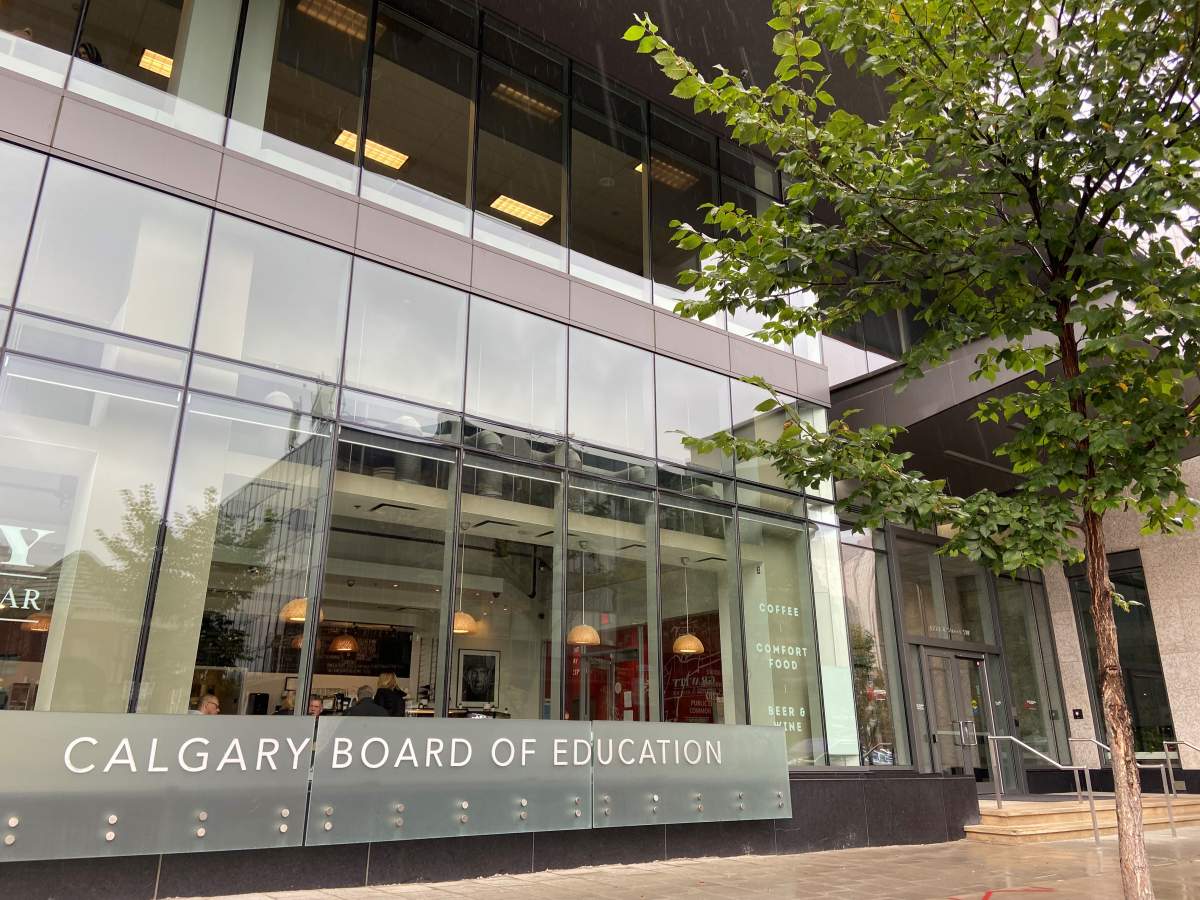As more Calgary children stay home from school sick and hospital visits skyrocket, a group of concerned parents are hoping to get some answers from the city’s largest school division on what’s being done to prevent the spread of airborne diseases.

That group has filed a regulatory complaint with the Association of Professional Engineers and Geoscientists of Alberta (APEGA) against the Calgary Board of Education.
“The complaint stems from concerns about the engineering ethical and skill requirements relating to implementation of ventilation and filtration mitigations for COVID-19 in schools,” the group said in a news release.
“As a scientist, when you ask a very specific question and you don’t get a specific answer, you start to wonder why that is,” Mark Ungrin, an associate professor at the University of Calgary, told Global News.
Amanda Hu, one of the complainants, said she had asked for clarification and engineering documentation around filtration, ventilation, fresh air exchange and compliance with guidelines around airborne disease mitigation – documentation she said she didn’t receive.
On Oct. 13, the American Society of Heating, Refrigerating and Air-Conditioning Engineers (ASHRAE) released its positions on infectious aerosols.
“Engineering controls demonstrated to reduce the risk of exposure to infectious aerosols include dilution with outdoor air provided by mechanical or natural ventilation, filtration of indoor air, indoor airflow patterns and disinfection by germicidal ultraviolet light and other technologies proven to be effective and safe,” ASHRAE wrote.

In a statement to Global News, the CBE said it installed MERV 13 filters in schools — where possible — in spring 2022, filters that continue to be used.

Get weekly health news
“In addition, all CBE schools are mechanically ventilated and systems are set to maximize air exchange,” the statement says.
“Over the past two school years, Alberta Labour, Occupational Health and Safety and Alberta Health Services have inspected CBE schools and determined that the health measures in place are fully compliant with existing government recommendations.
“Portable air-cleaning devices are generally recommended when no mechanical ventilation exists, which means when windows are the only ventilation. As our schools are mechanically ventilated, we have not installed these portable devices.”
“It’s not really enough to be told things are ‘safe’ or that they ‘meet guidelines,’” Hu said in a statement. “These measures are straightforward and they are either being done or not, so it was concerning to consistently not get specific answers and get answers that conflicted with guidance from government publications or expert recommendations.”
READ MORE: Young child among 6 Albertans who have died of influenza this season
Ungrin said CBE and Alberta more broadly don’t seem to be heeding the lessons of the SARS outbreak of 2003.
“If you just read the first four pages of the recommendations from (the SARS Commission report), there’s some really clear recommendations there around the handling of airborne SARS coronaviruses that have not been applied. You know, there were some lessons learned there that we seem to have forgotten about.”
Ungrin would like to see more portable filtration in classrooms. Classes from kindergarten through university in other jurisdictions have built filtration units known as Corsi-Rosenthal boxes out of readily available filters and fans, at a fraction of the cost of a commercially available unit.
But since CBE doesn’t seem to allow portable filters in classes and the premier and education minister said they will not be reinstating a mask mandate, Ungrin would like to see increased ventilation in classes.
“Ventilation is really one of the most significant remaining tools we have, particularly where we are politically in Alberta right now,” Ungrin said.
“If we’d looked at the hospitalization rate for children, the injury rate for children from these diseases, if five years ago anyone had suggested that this was acceptable, it would end political careers. But now it just seems like, ‘OK, well, we’ll just forget about it and we’ll just pretend it’s OK and hope that it’s not our kid that winds up in ICU.’”








Comments
Want to discuss? Please read our Commenting Policy first.